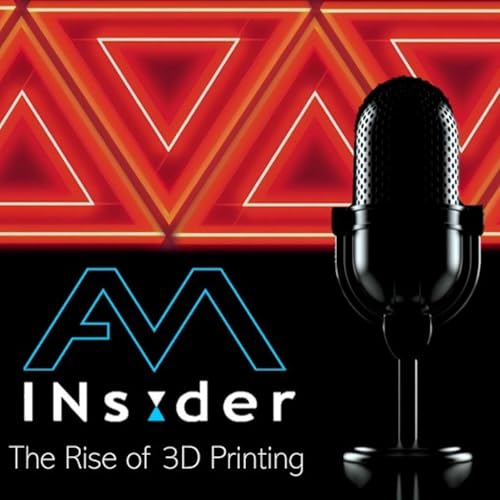
Rising Tides (The Heller Files)
カートのアイテムが多すぎます
カートに追加できませんでした。
ウィッシュリストに追加できませんでした。
ほしい物リストの削除に失敗しました。
ポッドキャストのフォローに失敗しました
ポッドキャストのフォロー解除に失敗しました
-
ナレーター:
-
著者:
概要
Send us a text
This episode of AM Insider, hosted by Justin Hopkins and Dustin Kloempken, dives deep into the cyclical nature of innovation and adoption within the additive manufacturing industry. The discussion explores the recurring challenges and breakthrough moments that have shaped its journey from the early days to the present.
I. Innovation Cycles in Additive Manufacturing (AM)
The AM industry evolves in waves, with renewed excitement and innovation every 7–10 years. Companies have shifted from a “build it and hope” mindset to a market-first approach, identifying customer needs before developing products. Early sales often involved overpromising, but today’s focus is on targeted, strategic product development.
II. The Power of Influencers and Advisors
Industry growth is driven not just by technology, but by trusted voices—visionaries and advisors who shape perception and build momentum. In the past, reliable information was scarce. Now, respected figures and platforms help validate and promote AM technologies.
III. “Rising Tide” Moments in AM
Key breakthroughs have propelled AM into the spotlight:
- Post-Recession Media Boom (Early 2010s): A surge in 3D printing coverage raised public awareness.
- GE Leap Nozzle (2011–2012): GE’s use of metal AM for a jet engine nozzle proved the technology’s real-world viability, especially for end-use parts. It shifted the narrative from cost savings to transformational manufacturing and spurred major investments.
- HP’s Market Entry: HP’s involvement brought credibility and scale, boosting global adoption.
- Obama’s 2013 State of the Union: Mentioning “America Makes” elevated AM to national attention.
IV. Plastics vs. Metals and What’s Next
While plastics dominate in volume, metal AM has seen faster ROI-driven growth, especially in low-volume, high-value applications. The next leap is expected within five years, driven by advances in materials, surface finish, and repeatability.


